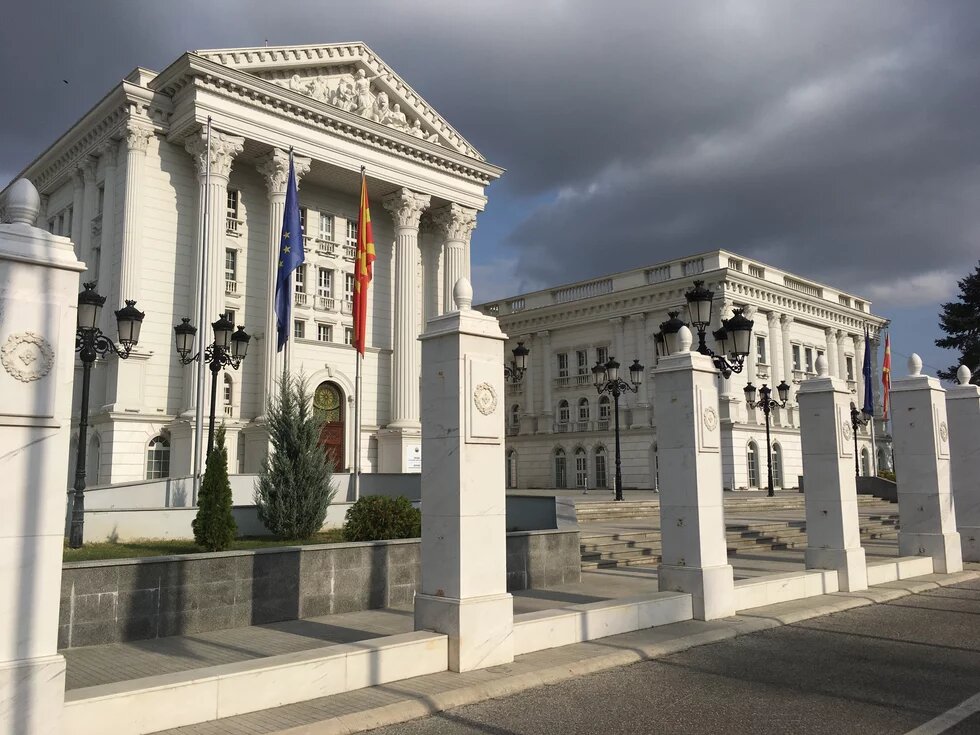North Macedonia must continue to wait for the start of EU accession negotiations. The European Councils decision has triggered a political crisis in the country. Not only the EU has lost credibility, but also Zoran Zaev's government. It should not be forgotten, however, that the upcoming new elections will once again confront in particular the civil society in North Macedonia with challenges that should not be underestimated.

A European offensive against civil society in North Macedonia
North Macedonia must continue to wait for the start of EU accession negotiations. The European Councils decision has triggered a political crisis in the country. Not only the EU has lost credibility, but also Zoran Zaev's government. It should not be forgotten, that the upcoming new elections will once again confront in particular the civil society in North Macedonia with challenges which should not be underestimated.
In 2005, the European Council decided to grant North Macedonia - then still Macedonia - candidate status for EU accession. Four years later, the European Commission adopted its first recommendation for the opening of accession negotiations. In October 2019, almost 15 years later, North Macedonia was eagerly awaiting the decision of the European Council.
The chances were better than ever. After several months of negotiations, the governments in Skopje and Athens agreed on the name North Macedonia, settling the long-standing name dispute. In a consultative referendum on the adoption of the name change, a majority of Macedonians supported the name change: "I agreed to changing the name with the confidence that it would pave the way for EU membership. For many Macedonians the membership represents hope for the future, so we have accepted this embarrassing action," says a young woman from Skopje.
French veto against the accession negotiations
Eventually, everything came out differently than expected: French President Emmanuel Macron’s vetoed the opening of accession negotiations with Albania and Northern Macedonia at the EU summit in mid-October. This meant that the opening accession talks will be again postponed. The disappointment in North Macedonia are considerable and the reactions after the EU's decision are fierce: President Zoran Zaev resigns at the end of the year and early parliamentary elections will be held in April 2020.
High-ranking officials and politicians have expressed their consternation, while experts assessed the French decision as a historic mistake. In the world press we read about the EU's declining credibility, destabilization and increased influence of Russia and Turkey in the region. The serious consequences of the decision for civil society, however, remain largely unnoticed.
Announced new elections
The announced new elections did not come as a surprise, due to the fact the prospect of accession negotiations was Zaev's government's political capital. Furthermore, the current government was also unable to keep its domestic promises. Therefore, it will be easy for the opposition to concentrate on the government's political failure and thus dominate the election campaign.
The conservative electorate has remained stable over the years. This is not the case with the Social Democratic voters. In addition, the quality of life in North Macedonia has not changed significantly for the single individual. "The expectations of the population after the mass protests were very high. Many of the people who then elected the Social Democrats are now disappointed and resigned. A majority of them will therefore probably stay away from the elections", says Slavčo Dimitrov, a member of Coalition Margini[1], which is committed to human rights and a democratic and free society.
Weakening civil society
In the past few years, civil society organizations have succeeded in promoting strong dialogue with the Social Democratic government. Civil society has been increasingly involved in political decision-making and legislative processes. This confirms also Tatjana Stoimenovska of the Helsinki Committee for Human Rights[2] in Northern Macedonia.
Slavčo Dimitrov adds: "In recent years we have been primarily focused on developing and sustaining dialogue with the Zaev government. Considering the specificity, complexity and urgent political demands, especially the still felt trauma of the experience with the authoritarian regime of VMRO-DPMNE and Nikola Gruevski, we negotiated and showed tolerance in respect to criticism and thereby put our credibility in the broad population at risk“. According to Dimitrov, it will therefore be difficult to join forces and fight again together with the broad population against a change of government.
Civil society agrees: If the national-conservative VMRO-DPMNE party regains again power, many of civil society's efforts will be called into question. "We are definitely at a turning point: if the VMRO-DPMNE wins the elections, the democratic processes that started two years ago will be in danger or even stopped," Tatjana Stoimenovska said. The representatives of civil society will then again be fighting for their legitimacy, instead of being able to continue to stand up for a free and democratic society. In the long run, this would lead to a renewed weakening of civil society.